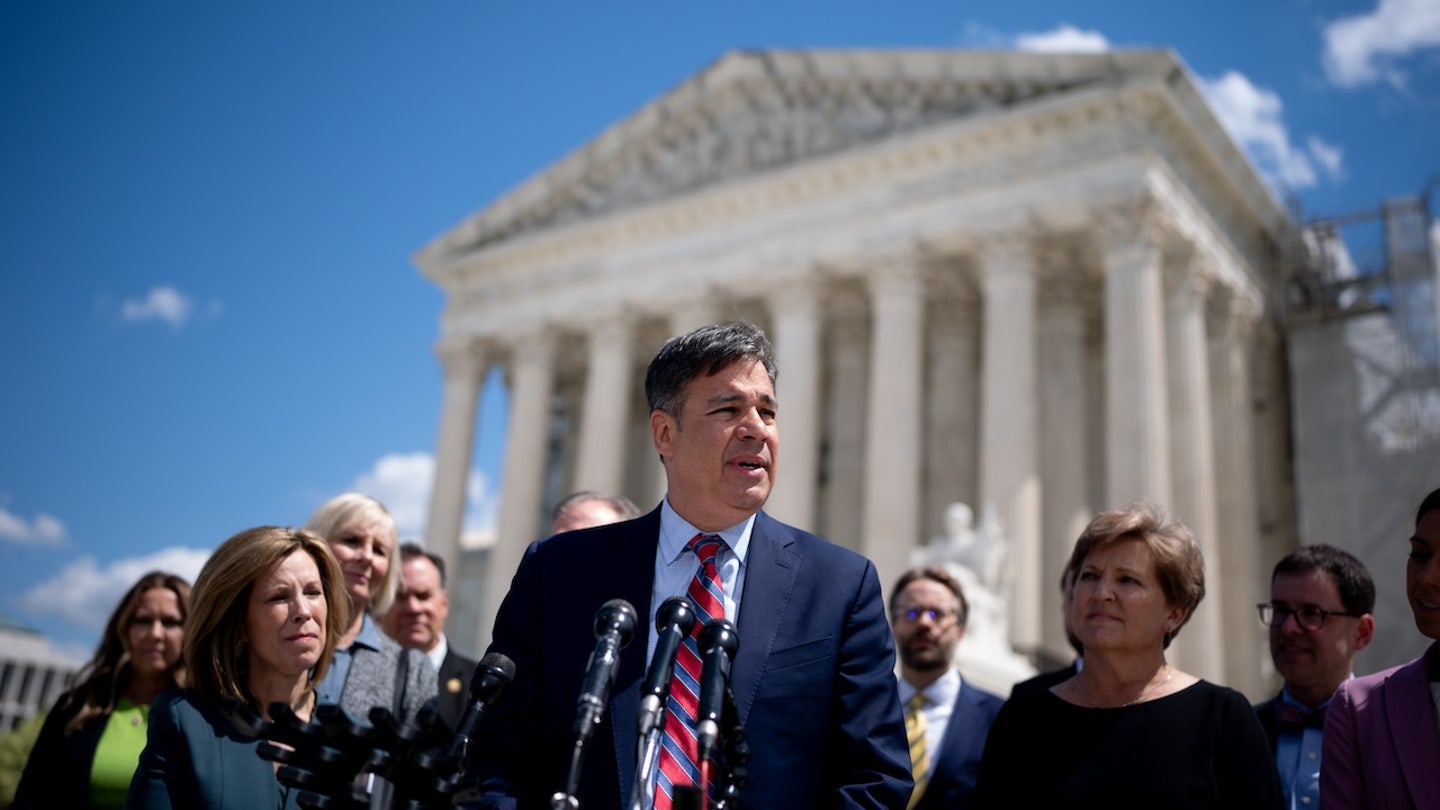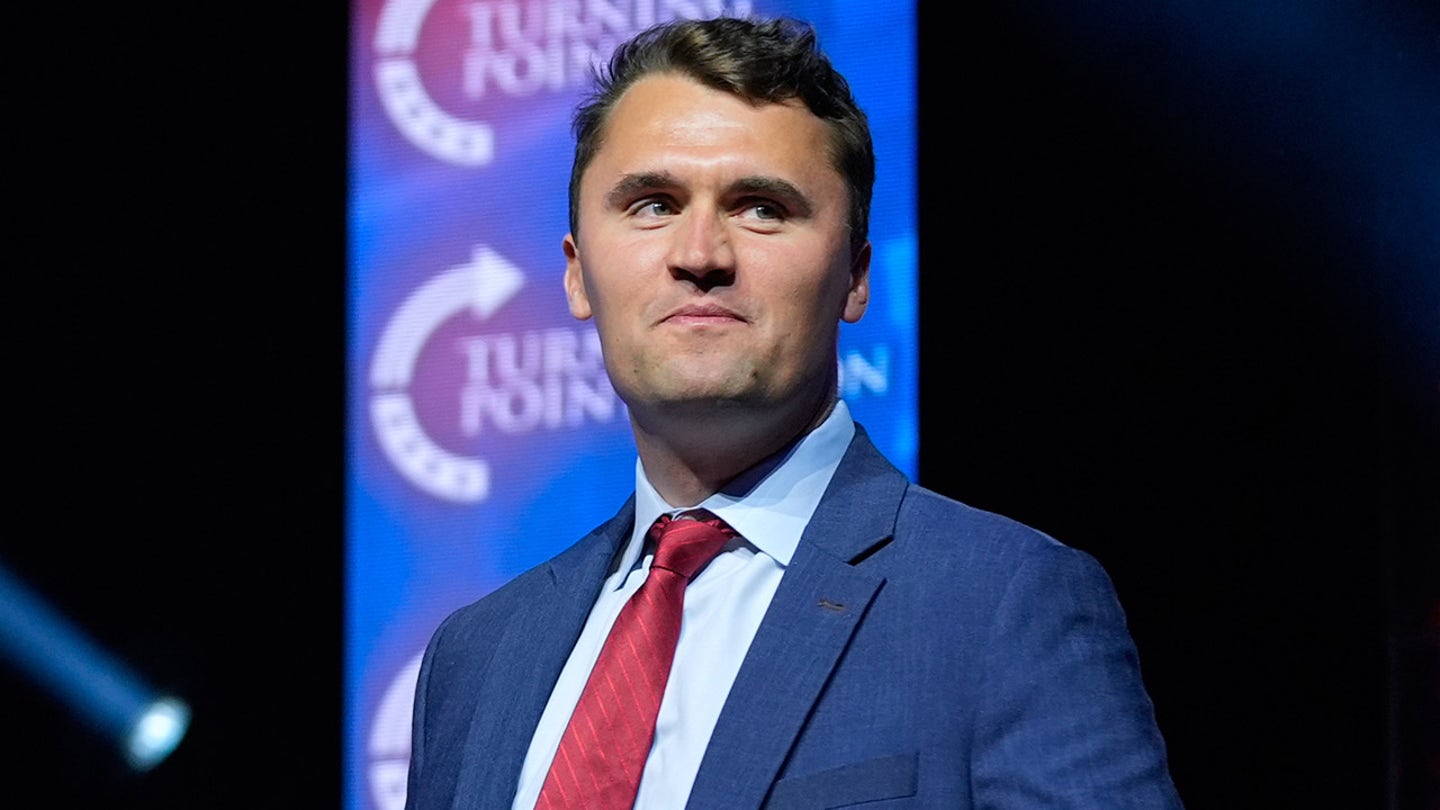
Federal judge rules in favor of allowing SCOTUS case over trans athletes to proceed after attempt to dismiss
Entities mentioned:
- Idaho Attorney General Raul Labrador: Justice, Competitive spirit, Determination
- Lindsay Hecox: Self-preservation, Recognition, Freedom
- U.S. District Judge David Nye: Justice, Duty, Professional pride
- Alliance Defending Freedom: Righteousness, Competitive spirit, Justice
Article Assessment:
Credibility Score: 75/100
Bias Rating: 65/100 (Lean Right)
Sentiment Score: 55/100
Authoritarianism Risk: 40/100 (Generally Democratic)
Bias Analysis:
The article leans right, focusing more on the perspective of those supporting the ban on trans athletes. It gives more space to quotes and arguments from the Idaho Attorney General and his allies.
Key metric: Equality in Sports Participation
Let me tell you something, folks - this is a HUGE play in the game of women's sports! We're seeing a real heavyweight bout between team 'Save Women's Sports' and the trans athlete squad. Idaho's Attorney General Labrador is coming out swinging, refusing to let this case get sidelined. This is fourth quarter, championship-level strategy we're witnessing! Judge Nye just threw a yellow flag on Hecox's attempt to run out the clock, keeping this match alive for the Supreme Court showdown. I'm telling you right now, this is the kind of clutch decision that can change the entire landscape of the playing field. We're not just talking about one athlete here - this is about the future of the whole league! The defense is playing offense, pushing for a game-changing ruling that could rewrite the rulebook for the entire nation. This is the kind of high-stakes face-off that defines careers and leaves a legacy. Stay tuned, sports fans - this matchup is going into overtime!

The NBA can’t risk a foul as it returns to its most important overseas market
Entities mentioned:
- NBA: Ambition, Competitive spirit, Influence
- Chinese fans: Enthusiasm, Loyalty, Recognition
- Beijing: Control, Power, Pride
- Daryl Morey: Righteousness, Self-respect, Freedom
- Alibaba: Ambition, Competitive spirit, Influence
- Donald Trump: Power, Influence, Control
Article Assessment:
Credibility Score: 75/100
Bias Rating: 55/100 (Center)
Sentiment Score: 60/100
Authoritarianism Risk: 45/100 (Mixed/Neutral)
Bias Analysis:
The article presents multiple viewpoints and includes expert opinions, showing a balanced approach. However, there's a slight tilt towards emphasizing the challenges and risks faced by the NBA in China.
Key metric: NBA Global Revenue Growth
Let me tell you something - this story is HUGE! The NBA is making a championship-caliber comeback in China, folks! After being benched for years, they're stepping up to the plate in a market that's as hot as a three-pointer at the buzzer. But make no mistake, they're playing on a court where one false move could send them to the penalty box. It's a high-stakes game of geopolitical basketball, and the NBA needs to bring their A-game to avoid fumbling this golden opportunity. They're walking a tightrope tighter than a last-second free throw, balancing their American values against Beijing's rulebook. One slip-up from a player or coach could turn this slam dunk into a costly turnover. The Chinese fans are cheering from the sidelines, but the real MVPs will be the ones who can navigate this political minefield without stepping out of bounds. It's fourth quarter, the clock is ticking, and the whole world is watching to see if the NBA can clinch this win-win situation or if they'll drop the ball on the global stage!

NCAA Nearing Approval of Single January Transfer Window For College Football
Entities mentioned:
- NCAA: Control, Unity, Professional pride
- College Football Coaches: Competitive spirit, Control, Self-preservation
- College Football Players: Ambition, Self-preservation, Freedom
- Division I Bowl Subdivision Oversight Committee: Control, Unity, Professional pride
Article Assessment:
Credibility Score: 85/100
Bias Rating: 50/100 (Center)
Sentiment Score: 65/100
Authoritarianism Risk: 35/100 (Generally Democratic)
Bias Analysis:
The article presents a balanced view of the proposed changes, including perspectives from both coaches and players. It relies on official sources and direct quotes, maintaining a neutral stance on the potential impacts.
Key metric: College Football Player Transfer Rates
Let me tell you something, folks - this is a GAME-CHANGER for college football! The NCAA is making a fourth-quarter move to revolutionize the transfer portal playbook. We're talking about a single January transfer window that's going to shake up the entire landscape! This is like instituting a new draft system mid-season, and it's going to separate the championship-caliber programs from the also-rans. Coaches are going to have to step up their recruitment game like never before, and players? They're getting a chance to make career-defining decisions without sacrificing their shot at postseason glory. It's a whole new ballgame, and I'm telling you right now, this could be the difference between hoisting that national championship trophy and watching from the sidelines. The teams that adapt to this new transfer strategy are going to be the ones cutting down the nets in January!

NFL great's NJ hometown refused to lower flags in honor of Charlie Kirk, its neighbors rose to the occasion
Entities mentioned:
- Nick Mangold: Moral outrage, Righteousness, Patriotism
- Madison, NJ: Duty, Wariness, Self-preservation
- Florham Park: Patriotism, Duty, Loyalty
- East Hanover: Duty, Loyalty, Patriotism
- Summit: Duty, Loyalty, Patriotism
- Donald Trump: Power, Control, Legacy
- Charlie Kirk: Influence, Legacy, Freedom
- Greg Abbott: Unity, Loyalty, Patriotism
Article Assessment:
Credibility Score: 75/100
Bias Rating: 65/100 (Lean Right)
Sentiment Score: 35/100
Authoritarianism Risk: 45/100 (Mixed/Neutral)
Bias Analysis:
The article leans right by focusing heavily on conservative figures and their supporters. It presents criticism of those not lowering flags while giving more space to those who complied with Trump's proclamation.
Key metric: National Unity
Let me tell you something - this flag-lowering situation is turning into a FULL-COURT PRESS of political drama! We've got former NFL star Nick Mangold coming off the bench to call out his hometown for not following the President's playbook. It's like we're watching a high-stakes game of patriotic hot potato, with some towns stepping up to the plate and others fumbling the ball. This is RIDICULOUS, folks! We've got a divided locker room situation here, with neighboring towns playing by different rulebooks. It's fourth quarter, and the clock is ticking on national unity. Some players are showing real team spirit, while others are sitting on the sidelines. I'm telling you right now, this is the kind of play that can make or break a nation's championship mentality!

Ex-Jets star 'disgusted' with New Jersey town for failing to honor Charlie Kirk
Entities mentioned:
- Nick Mangold: Righteousness, Moral outrage, Patriotism
- Charlie Kirk: Influence, Legacy, Freedom
- Madison, New Jersey: Wariness, Self-preservation, Indignation
- President Donald Trump: Power, Control, Loyalty
- Gov. Phil Murphy: Control, Self-preservation, Professional pride
- Bergen County: Self-preservation, Duty, Obligation
Article Assessment:
Credibility Score: 70/100
Bias Rating: 65/100 (Lean Right)
Sentiment Score: 25/100
Authoritarianism Risk: 45/100 (Mixed/Neutral)
Bias Analysis:
The article leans right, framing the flag issue as a clear moral imperative. It prominently features conservative voices and perspectives, while giving less space to opposing viewpoints.
Key metric: Social Cohesion
Let me tell you something - this political football game is getting HEATED! We've got a real clash of titans here, folks. On one side, we have team 'Patriotic Respect' led by MVP Nick Mangold, throwing a Hail Mary pass to honor fallen player Charlie Kirk. But WAIT! The opposing team 'Local Government' is running interference, refusing to lower their flag! This is a CRUCIAL play in the fourth quarter of our nation's unity game. I'm telling you right now, this kind of team division could cost us big in the championship of social cohesion. We're seeing some serious defensive strategies from Madison and Bergen County, trying to protect their end zone from federal pressure. But Mangold's not backing down - he's bringing his A-game, calling out the coaches and putting the pressure on. This is the kind of high-stakes political athletics that can make or break a nation's team spirit!

Panthers fire staffer over insensitive Charlie Kirk assassination social media posts
Entities mentioned:
- Carolina Panthers: Self-preservation, Professional pride, Control
- Charlie Rock: Moral outrage, Indignation, Freedom
- Charlie Kirk: Influence, Ambition, Competitive spirit
- MSNBC: Self-preservation, Professional pride, Control
- Matthew Dowd: Moral outrage, Recognition, Freedom
- FBI: Justice, Duty, Determination
Article Assessment:
Credibility Score: 75/100
Bias Rating: 55/100 (Center)
Sentiment Score: 25/100
Authoritarianism Risk: 30/100 (Generally Democratic)
Bias Analysis:
The article presents a balanced view of events, quoting multiple sources. While it reports on a conservative figure's assassination, it doesn't overtly favor either political side in its coverage.
Key metric: Political Polarization Index
Let me tell you something - this story is RIDICULOUS! We're seeing a major league shakeup in the political arena, folks. The assassination of Charlie Kirk has sent shockwaves through the conservative lineup, and now we're witnessing a full-court press from organizations to distance themselves from any players making unsportsmanlike conduct on social media. The Carolina Panthers and MSNBC are running defense, making rapid-fire cuts to their roster to protect their team image. It's a high-stakes game of reputation management, and these organizations are not hesitating to bench anyone who steps out of bounds. The FBI is in full blitz mode, determined to tackle this case head-on. This is a crucial moment, sports fans - we're seeing a real test of America's political sportsmanship and fair play. The question remains: can our democracy withstand this brutal hit, or are we heading into overtime in a game that's becoming increasingly violent?

Minnesota Timberwolves player’s sister fatally shot at New Jersey apartment complex, her boyfriend charged with murder
Entities mentioned:
- Naz Reid: Professional pride, Loyalty, Self-preservation
- Toraya Reid: Security, Self-respect, Freedom
- Shaquille Green: Control, Revenge, Fear
- Minnesota Timberwolves: Competitive spirit, Loyalty, Professional pride
- Ocean County Prosecutor Bradley Billhimer: Justice, Duty, Professional pride
Article Assessment:
Credibility Score: 85/100
Bias Rating: 50/100 (Center)
Sentiment Score: 20/100
Authoritarianism Risk: 30/100 (Generally Democratic)
Bias Analysis:
The article presents a straightforward account of events without apparent political slant. It relies on official sources and factual reporting, maintaining a neutral stance on the incident.
Key metric: NBA Player Safety and Well-being
Let me tell you something, folks - this is a DEVASTATING blow to the Timberwolves' roster! Just when Naz Reid was at the top of his game, winning 'Sixth Man of the Year' and signing a five-year contract, tragedy strikes from way outside the court. This is like taking a brutal charge in the paint of life, and it's going to test Reid's mental toughness like never before. The Timberwolves organization needs to step up BIG TIME here, providing the ultimate assist to their star player off the court. This isn't just a personal foul, it's a game-changing moment that could impact Reid's performance and the team's chemistry. I'm telling you right now, how the Timberwolves handle this crisis will show if they truly have that championship mentality and team-first attitude when it REALLY counts!

Mark Teixeira discusses political divide, says he can’t talk to people that believe ‘men can get pregnant'
Entities mentioned:
- Mark Teixeira: Righteousness, Duty, Ambition
- Democratic Party: Control, Influence, Unity
- Republican Party: Loyalty, Determination, Freedom
- Dan Dakich: Professional pride, Curiosity, Influence
- Chip Roy: Ambition, Power, Influence
Article Assessment:
Credibility Score: 65/100
Bias Rating: 75/100 (Lean Right)
Sentiment Score: 40/100
Authoritarianism Risk: 35/100 (Generally Democratic)
Bias Analysis:
The article leans right, presenting Teixeira's conservative views without significant counterbalance. It sources from Fox News and OutKick, known for conservative leanings, and frames progressive ideas in a dismissive manner.
Key metric: Political Polarization Index
As a social scientist, I analyze that this article highlights the growing political polarization in the United States, as exemplified by Mark Teixeira's comments. His inability to engage in dialogue with those holding certain progressive views indicates a breakdown in communication between ideological groups. This polarization is likely to impact political discourse, policy-making, and social cohesion. Teixeira's transition from sports to politics represents a trend of non-traditional candidates entering the political arena, often appealing to populist sentiments. His emphasis on 'America First' and traditional values suggests a conservative platform that may resonate with his target constituency but could further entrench existing divides.

Athletic event that allows steroids sues World Anti-Doping Agency, swimming governing bodies for $800 million
Entities mentioned:
- Enhanced Games: Competitive spirit, Freedom, Recognition
- World Aquatics: Control, Professional pride, Power
- USA Swimming: Control, Professional pride, Loyalty
- World Anti-Doping Agency: Control, Righteousness, Professional pride
- Husain al-Musallam: Professional pride, Control, Righteousness
- Dr. Aron D'Souza: Ambition, Competitive spirit, Indignation
- James Magnussen: Ambition, Recognition, Competitive spirit
Article Assessment:
Credibility Score: 70/100
Bias Rating: 55/100 (Center)
Sentiment Score: 35/100
Authoritarianism Risk: 45/100 (Mixed/Neutral)
Bias Analysis:
The article presents both sides of the argument, quoting representatives from Enhanced Games and World Aquatics. However, it gives slightly more space to the Enhanced Games' perspective, potentially due to the newsworthiness of their lawsuit.
Key metric: Sports Integrity and Anti-Doping Measures
As a social scientist, I analyze that this lawsuit represents a significant challenge to the established norms and regulations in international sports, particularly concerning anti-doping measures. The Enhanced Games' approach of allowing performance-enhancing substances directly conflicts with the long-standing policies of major sporting bodies. This conflict highlights the tension between traditional notions of fair play and emerging perspectives on athlete autonomy and performance enhancement. The lawsuit could potentially impact how anti-doping policies are enforced and perceived globally, possibly leading to a reevaluation of current practices. It also raises questions about the power dynamics between athletes and governing bodies, as well as the ethical considerations surrounding performance enhancement in sports. The outcome of this legal battle could have far-reaching implications for the future of competitive sports, athlete rights, and the definition of fair competition.

WNBA star Paige Bueckers calls for tight gun control laws after Minnesota Catholic church shooting
Entities mentioned:
- Paige Bueckers: Moral outrage, Justice, Righteousness
- Robert/Robin Westman: Revenge, Moral outrage, Fear
- Annunciation Church: Unity, Security, Freedom
- Minneapolis Police: Duty, Justice, Security
Article Assessment:
Credibility Score: 70/100
Bias Rating: 55/100 (Center)
Sentiment Score: 25/100
Authoritarianism Risk: 30/100 (Generally Democratic)
Bias Analysis:
The article presents a balanced view, including quotes from Bueckers and factual information from authorities. While it leans slightly right due to the Fox News source, the content itself remains mostly neutral in its presentation of the event and reactions.
Key metric: Gun Violence Rates
As a social scientist, I analyze that this article highlights the ongoing issue of gun violence in the United States, specifically in public spaces like schools and churches. The call for stricter gun control laws by a prominent athlete reflects growing public concern and could potentially influence policy discussions. The incident's impact on a religious institution may also affect perceptions of public safety and community cohesion. The involvement of children as victims is likely to intensify emotional responses and debates around gun control measures.